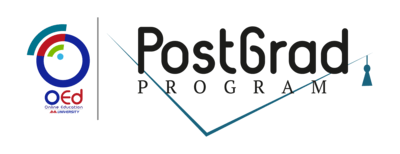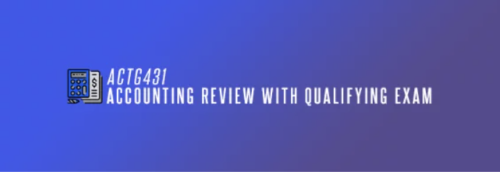Online Short-Term Certification Courses in Finance and Accounting
OEd PostGrad offers online short courses in the Philippines targeting different skill sets for various professionals. These courses include short-term certification courses in finance and accounting, which are designed for both finance professionals and anyone interested in learning more about finance and accounting. Our finance and accounting short courses cover a wide range of topics from basic refresher courses to more advanced skills.
Our Online Finance and Accounting Short Courses
Finance professionals deal with an ever-changing industry with strict laws and regulations. In such a high-stakes and competitive industry, staying updated and enhancing your skill set is a must.
OEd Postgrad’s short certification courses are a great way for busy finance professionals to refresh their knowledge or augment existing skills. Our courses are short and flexible so you can complete them at your own pace, depending on your schedule.
By developing new, relevant skills, you become a better accountant and, inevitably, an asset to your organization or clients. Our short course certifications can also help open new doors for professionals who want to advance their careers and new entrants to the finance industry.
With continuous learning and upskilling, you can sustain your career development and flourish in the finance and accounting field.
Accounting Short Course Objectives
The short-term courses in finance are designed to allow professionals and entrepreneurs update their skills. The short course’s objectives are:
- To help candidates master fundamental financial concepts and accounting principles to conduct effective financial analysis.
- To develop candidates’ financial analysis skills, allowing them to navigate financial data and make informed decisions.
- To understand financial statements, financial transaction classifications, the account cycle, and cash flows.
- To gain an understanding of the Philippine tax system and laws that will equip them in ensuring individuals’ or businesses’ tax compliance.
- To prepare candidates with the relevant competency to provide insight into business decisions and emerging trends in finance.
Brothers and professors of accounting at Brigham Young University Jim and Kay Stice review the accounting equation, the three primary financial statements, how to use accounting to aid decision making, and how income taxes figure into business and personal decisions. They use real-world example data from Walmart and other businesses so you can see how numbers drive everything from wages and product costs to home budgets.
In this course, accounting professors Jim and Kay Stice walk you through the four key steps in the bookkeeping process: analyzing, recording, summarizing transactions, and preparing financial reports. They explain the components of a journal entry (debits and credits) and the essential questions a bookkeeper/accountant asks in reviewing those transactions. They also explain how accountants translate ledger information into financial statements, and the role of computer programs such as Quicken in helping businesses manage their accounts.
This course covers purchase budgets, production budgets, hiring budgets, overhead budgets, and cash budgets. Professors Jim and Kay Stice help you weigh the impact of strict versus more moderate budgeting on employee morale, and show how budgets pay off in the future, when you can use them to evaluate your business performance.
Managerial accounting helps managers make decisions using an organization’s financial data. An understanding of managerial accounting helps you figure out how much a product costs, analyze when your company breaks even, and budget for expenses and future growth. In this course, accounting professors Jim and Kay Stice cover all the fundamentals, including costs and cost behaviors, cost-volume-profit (CVP) relationships, cost flows, standard costing and activity-based costing, and budgeting.
This course deals with the principles involved in the monitoring, distributing and securing of information by accountants. Evaluating AIS investments as well as dealing with challenges involved in building AIS systems are also tackled.
This course aims to assess candidate’s ability to demonstrate understanding and application of accounting principles and standards. It is designed to equip candidates with sufficient learnings and knowledge before advancing to higher accounting studies.
This accounting review with qualifying examination constitutes topics covered under Financial Accounting and Reporting I and II. This course will cover review on Theory of Accounts and Practical Accounting I as provided in the licensure examination for Certified Public Accountants.
Kick-start your career in accounting and help companies run more effectively as an accounts payable officer. With this learning path, you’ll gain a solid foundation in accounting, finance, and cash flow, as well as experience using essential accounting tools like QuickBooks.
Review essential math concepts and strategies.
Learn the fundamentals of accounting and corporate finance.
Practice with hands on essential training in Quickbooks.
Ready to begin a career in finance? Bookkeepers are essential to the success of small businesses. This path will help you build a strong foundation in accounting and small business finance as well as QuickBooks, and the best practices of bookkeeping.
Master the fundamentals of bookkeeping, accounting, and finance.
Create sample company files and records in QuickBooks.
Learn from industry experts on how to run a profitable business.
Over the past decade, the financial planning and analysis profession has grown dramatically. Learn the skills you need to gather, analyze and present financial data so you can become a Corporate Financial Planning Analyst, and begin working toward becoming a corporate strategic partner.
Develop basic financial analyst skills required as a Corporate Financial Planning Analyst
Demonstrate technical skills to execute effectively.
Build leadership and communication skills to excel and advance.
This course is intended to orient students to the accounting of costs of a manufacturing business. These cover overview of cost accounting, manufacturing cost accounting cycle, product costing systems, and variance analysis.
Review concepts such as financial analysis, accounting, and budgeting. Learn how to use financial data to diagnose business conditions, identify issues, and develop plans. Explore processes to determine how money will be spent to get work done and see how to establish and maintain realistic budgets.
Explore financial, managerial, and tax accounting.
Relate accounting, decision-making, and financial health.
Interpret financial statements and communicate results.
In this course, Brigham Young University business professors Jim and Kay Stice provide a comprehensive overview of finance, and touch on everything from reading a balance sheet to understanding derivatives and securities. They tackle questions such as “What is the difference between short-term financial management and long-term financing?” and “What is the difference between a traditional bank, an investment bank, and an investment fund?”
In this course, accounting professors Jim and Kay Stice provide an introduction to the most important business valuation methods. They proceed from the valuation of individual assets and liabilities to the valuation of entire businesses. The course includes practice with simple valuation models, such as the use of multiples and price-to-earnings ratios, as well as the more complicated “discounted cash flow” valuation model. The final chapters include a fun and practical examination of the value of one very real business, McDonald’s and some parting words of advice.
If you are looking to grow your career and take on greater responsibility within your organization, you’ll need to demonstrate a basic understanding of financial management even if you’re not in a financial role. You do not have to be a numbers person! You just have to appreciate their role in business. In this course, accounting professor Jim Stice helps you develop the financial acumen necessary to:
- Interpret financial reports and make decisions based on available data.
- Manage inventory and receivables.
- Create an accurate budget.
- Cost a product or service.
- Analyze customers.
- Understand your income taxes.
- Communicate your contribution to the bottom line.
Accounting and finance professors Jim and Kay Stice will make filing this year’s taxes a bit easier for you by explaining basic taxation concepts and terminology. In this course, they cover topics such as taxable income, tax brackets, average tax rates, withholdings, deductions, and credits, and explain the motivation behind federal tax deductions for mortgages, dependents, and charitable giving. They review the steps involved in filing a personal income tax return, address some of the issues that corporations and small businesses face in filing their returns, and cover the benefits of tax planning.
A wealth of information is available to you if you know how to read financial documents. Being able to glean information from an income statement, a cash flow statement, or a balance sheet can give you an edge in understanding not only your own business but also your competition. In this course, Rudolph Rosenberg, a finance expert, takes you through the steps of making sense of what is contained in financial reports and how to read them.
This course introduces the nature, functions, scope, and limitations of the broad field of accounting theory. It deals with the study of the theoretical accounting framework objectives of financial statements, accounting conventions, and generally accepted accounting principles, standard setting process for accounting practice, national as well as international principles relating to the preparation and presentation of financial statements, the conditions under which they may be appropriately applied, their impact or effect on the financial statements; and the criticisms commonly leveled against them. The course covers the detailed discussion, appreciation, and application of accounting principles covering the assets, financial and non-financial. Emphasis is given on the interpretation and application of theories of accounting in relation to cash, temporary investments, receivables, inventories, prepayments, long-term investments, property, plant and equipment, intangibles, and other assets, including financial statement presentation and disclosure requirements. The related internal control, ethical issues, and management of assets are also covered. Exposure to computerized system in receivables, inventory, and lapsing schedules is a requirement in this course.
This course is intended to give students an overview of the Philippine Tax System. These include basic principles and rules of the income tax system that are applicable to individuals and corporations. This also covers a guide on how to file the income tax returns, know the prescriptive periods and the remedies of the taxpayers.
Join professors Jim and Kay Stice as they introduce the theory, practice, and implications of revenue recognition. Together they demonstrate how this seemingly innocent accounting topic can turn a reported profit into a reported loss, sometimes with multibillion-dollar implications for company values.
Financial ratio such as ROI (return on investment) or ROA (return on assets) are a valuable tool for measuring a company’s progress against a financial goal, a certain competitor, or the overall industry. In this course, professors Jim and Kay Stice explain the financial ratios found on balance sheets, income statements, and cash-flow statements and provide examples from real-world companies such as Walmart, Nordstrom, and McDonald’s.
Admission Requirements:
If you have a computer or a smartphone, you may use that device to enroll in the course you want. When it comes to payment options, we give you an option to pay using PayPal, GCash, or Dragonpay. If you’re currently outside the country, you may send your payment via an online bank transaction, remittance, or PayPal.
Get in touch with us if you have further inquiries about our finance & accounting short online learning program.
For New Student ApplicantsClick Register button in the menu bar.
To register, fill up the online form and click Register button.
To continue your enrollment, open http://portal.amauonline.com, enter your email address and password then click Login button. In the notification block, you may enroll in short courses by clicking Here button. Choose course to enroll.
- Click enroll now.
- Click view payment details under short courses.
- Click go to payment.
- Select payment option.
- Click pay now button.
For Registered Users Open http://portal.amauonline.com, enter your email address and password then click Login button. In the notification block, you may enroll in short courses by clicking Here button.
- Choose course to enroll.
- Click enroll now.
- Click view payment details under short courses.
- Click go to payment.
- Select payment option.
- Click pay now button.
Short Courses in Finance and Accounting FAQs
All our short courses online are open to professionals from different industries and levels of experience in the finance world. No specific degree or experience is required to apply to any of our courses, only your interest in finance and accounting.
OEd Postgrad offers a wide range of courses covering both foundational and advanced topics meant to benefit beginners and professionals. Our courses are prepared and taught by industry experts so you can guarantee that you can get valuable insights.
If you’re new to finance, OEd Postgrad has these great courses to get you started. We offer a series of courses on accounting foundations for bookkeeping, budgeting, and managerial accounting. We also offer foundational courses in finance, covering an overview of finance, business valuation, income taxes, and how to read financial reports.
OEd Postgrad’s short courses aim to develop professional skills that leverage to enter the finance and accounting field or advance your career. We have courses that can help you establish a solid foundation so you can move toward your desired profession or specialization. For finance professionals, upskilling could help improve performance so they can qualify for promotions.
Our online short courses are designed for busy finance and accounting professionals, so we offer as much flexibility as possible. Complete your courses at your own pace, anywhere. But we do suggest that you complete the courses as quickly as possible to maximize learning.
Yes. Some of the short courses we offer tackle foundational knowledge and skills that would be useful for those with zero or little experience in finance.
All OEd PostGrad short courses are conducted online. All short-term courses in finance are available at our learning portal where you can access them and study anytime.
Of course! Candidates of our accounting short courses may reach out to instructors through e-mail if they have any questions or clarification about the lessons. You can rest assured that the instructors will respond as soon as possible.









